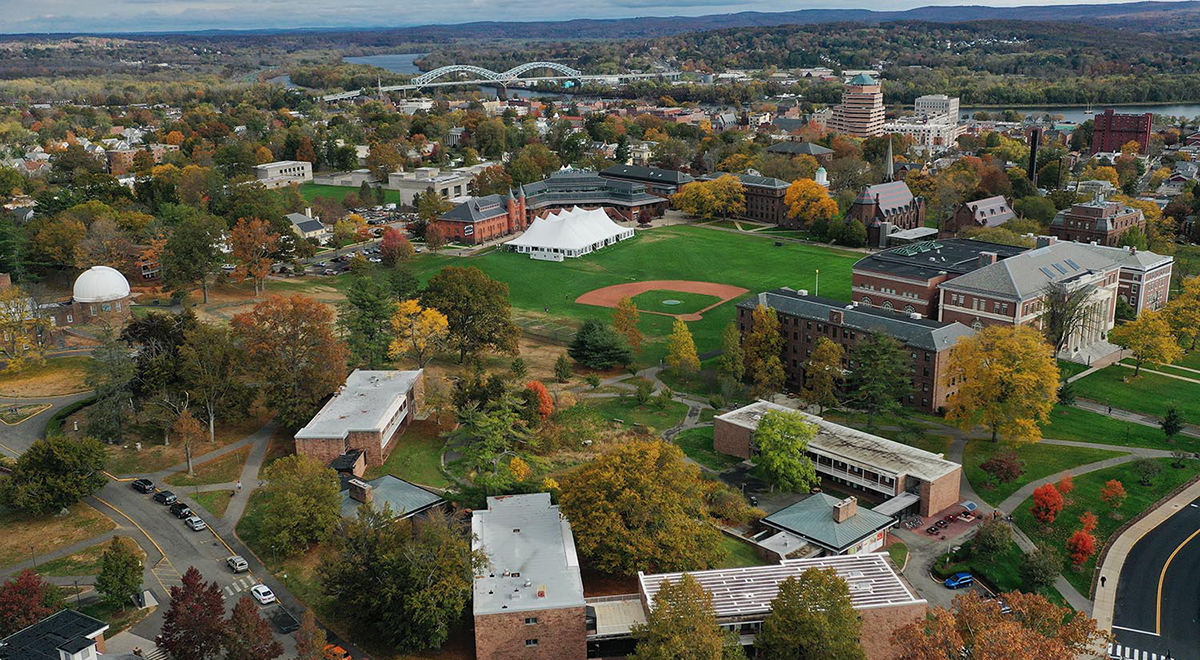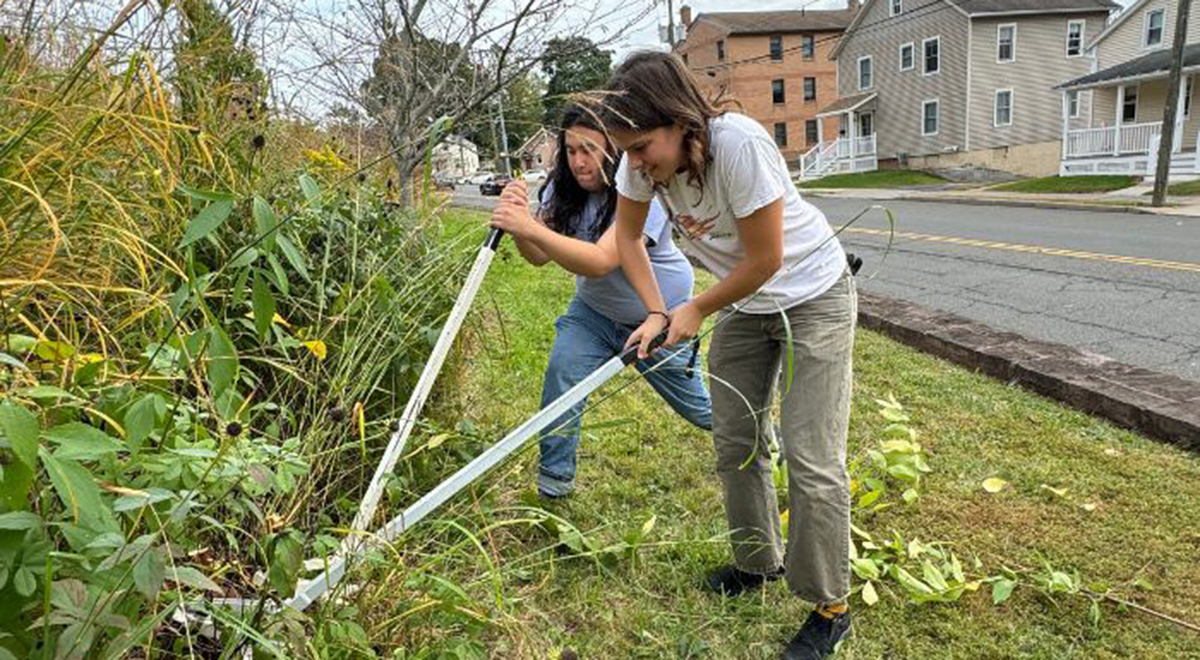Campus Sustainability Work on the Rise

The Wesleyan community has demonstrated a commitment to the University’s sustainability goals. Undergraduate participation in sustainability in coursework, workshops, and research incorporating environmental justice is on the rise, as is the University’s engagement with Middletown on sustainability efforts.
In 2023-24, 1,717 students, or 55 percent of undergraduates, engaged in one or more internships, courses, research projects, leadership experiences, workshops, or volunteer activities related to sustainability. This is an increase of 160 students from 2022-23, according to an annual progress report on the University’s Sustainability Strategic Plan.
“It’s been exciting to see a continued increase in student engagement with sustainability both inside and outside the classroom,” said Jennifer Kleindienst, Sustainability Director. “Nearly 53 percent of undergraduates took at least one of the 103 available sustainability-related courses last year, which is especially exciting because of the efforts the Sustainability Office and Bailey College of the Environment have taken over the past decade to integrate sustainability into courses.”
Available coursework was also expanded to meet the demand from students, including the first-ever Spanish-language Environmental Studies course at Wesleyan, “Venezuela: The Effect of Oil Discovery on People, the Environment, and Democracy.” The Bailey College of the Environment also funded summer fellowships for 40 students, giving them the opportunity to do research projects of their choosing.
“The more that students can see how issues of sustainability and environmental justice connect to their areas of interest, the better prepared they will be to address local and global challenges post-Wesleyan,” Kleindienst said.
Wesleyan also increased environmental justice initiatives in the local community. The Bailey College of the Environment has created partnerships with over 40 statewide food and environmental justice organizations, according to the annual report. The Jewett Center for Community Partnerships also hosted “Growing Power” a conference on farming and social change with the Katal Center for Equity, Health, and Justice with over 350 people from 38 municipalities. The Allbritton Center for the Study of Public Life hosted a series of “living room conversations” to identify opportunities for student civic engagement, which led to a series of spring workshops with over 80 students on institutional memory, communications, and power mapping.

“It’s energizing working alongside so many people, especially students, who are continually holding us accountable and partnering continually to make Wesleyan and the greater Middletown community more sustainable,” Kleindienst said.
A Wesleyan cross-departmental initiative built a tool, the Community Matchbox, to connect Wesleyan staff, students, faculty, and departments with the larger Middletown community for collaborative opportunities. The tool provides a space for people to make requests for things like volunteers for a short-term project—or to offer their expertise. “We have helped make new connections in the fall’s inaugural pilot program and are in progress building a public database of community and student groups seeking partnerships,” Kleindienst said.
Alongside developments in sustainability education and community work, Wesleyan has also reduced its reliance on single-occupant vehicles on campus. A significant campus outreach campaign helped increase community ridership on River Valley Transit’s buses and XtraMile on-demand shuttles from about 1,400 riders in 2023 to around 2,200 riders in 2024.
The campus’ conversion of steam-to-hot-water heating is also 57 percent complete, with six of 11 phases finished. This conversion will help further reduce energy use and carbon-consumption on campus, the report said.

